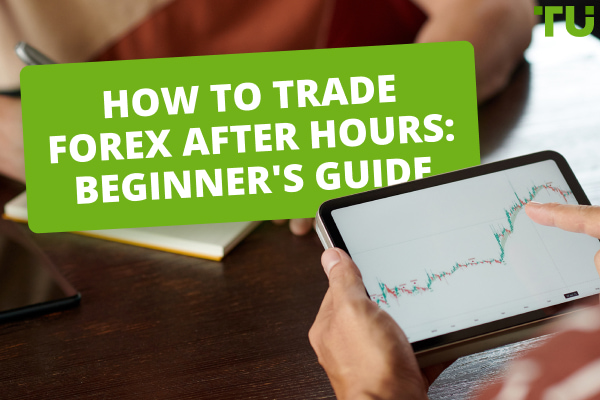How Do I Overcome Fear Of Loss In Forex Trading?
Take 6 steps to overcome fear of loss in forex trading:
-
1
Identify the source of your fear.
-
2
Remember that losing is a part of trading.
-
3
Set realistic expectations
-
4
Develop a trading plan.
-
5
Use a stop loss.
-
6
Take breaks.
In the world of Forex trading, the fear of loss can be a formidable obstacle on the path to success. However, by delving into its roots and implementing effective strategies, traders can not only conquer this fear but also enhance their trading performance and inch closer to their coveted financial objectives.
This article is dedicated to addressing the vital question: "How do you overcome the fear of loss in forex trading?" Let's explore the insightful answers that lie ahead.
What is a fear of loss?
Fear of loss is a prevalent sentiment among Forex traders, often triggering emotional decision-making that can lead to financial setbacks. To address this challenge, here are six essential steps to overcome the fear of loss in Forex trading.
-
Identify the source of your fear.
-
Remember that losing is a part of trading.
-
Set realistic expectations.
-
Develop a trading plan.
-
Use a stop loss.
-
Take breaks.
Step 1. Identify the source of your fear
The initial and crucial step in overcoming the fear of loss in Forex trading is to pinpoint the origins of this emotion.
These sources can typically be categorized into several key factors:
Personal Factors
Some individuals are naturally more predisposed to fear than others. This predisposition may be attributed to their personality traits, past experiences, or upbringing.
For instance, a person who grew up in poverty might be more susceptible to the fear of loss compared to someone from a wealthier background.
Financial Factors
The fear of losing these funds can be amplified if you are trading with funds that are earmarked for essential expenses, such as bills or other financial obligations.
Traders who are using money they cannot afford to lose are often more anxious about potential losses than those who can comfortably afford the risk.
Experience
Past experiences can significantly influence the fear of loss. If you have encountered substantial losses in Forex trading before, these experiences might intensify your fear of future losses.
For example, a trader who has previously lost a substantial amount of money on a single trade may exhibit a heightened fear of loss compared to a trader with a history of minimal losses.
Media Influence
The media, including news outlets and social platforms, frequently report on significant losses incurred by traders. Exposure to such stories can magnify the fear of loss, especially among individuals who are unfamiliar with the inherent risks of Forex trading.
Traders who continually consume such narratives in the media are more likely to grapple with an intensified fear of loss than those who do not expose themselves to such information.
Step 2. Remember that losing is a part of trading
No matter how skilled or experienced you are as a trader, occasional losses are an integral part of the trading process. Here is why:
-
It is impossible to predict the future. Asset prices can move in any direction, and it is impossible to predict how they will move in the future. Prices can be affected by random events such as, for example, natural disasters.
-
There is no perfect trading strategy. Even the best trading strategies cannot guarantee profitability.
-
A trader can make mistakes. Even experienced traders can make mistakes that lead to losses.
-
Technical failures of various types. Losses can occur for reasons beyond the trader's control.
Step 3. Set realistic expectations
Setting realistic expectations in Forex trading is important for several reasons. Unrealistic expectations, such as anticipating consistently high profits with minimal risk, can lead to disappointment and emotional distress when market unpredictability results in losses. This emotional turmoil often triggers impulsive, high-risk decisions.
Realistic expectations enhance risk managemen by promoting protective measures like stop-loss orders and appropriate position sizing, safeguarding capital, and mitigating the impact of unforeseen losses.
Step 4. Develop a trading plan
A trading plan fosters discipline and emotional control, steering traders away from impulsive decisions that often lead to losses.
It provides a clear roadmap for traders, defining their goals, whether focused on capital preservation, growth, or aggressive returns, enabling better performance evaluation.
It includes risk management strategies and tolerance levels, safeguarding capital from substantial losses.
Templates can be helpful in creating a trading plan. If you want a structured format to fill in specific details, goals, and strategies, making the process more organized and accessible as a trader, here is the TU article that helps you out: Trading Plan Templates for different trading styles.
Step 5. Use a stop-loss
A stop loss is an order set at a predetermined level that automatically closes a trade if the market moves against you, limiting potential losses.
This practice is invaluable for preventing emotional decision-making during adverse market conditions and protecting your capital.
Step 6. Take breaks
Stepping away from the trading platform during such times is essential to regain composure. Use these breaks to read psychology books and motivational articles to enhance your mental fortitude.
Additionally, take the opportunity to analyze your trading performance, identify areas for improvement, and prepare to be a more skilled trader in the future. These breaks are not only a respite but also a chance for self-improvement and a clearer mindset.
8 tips to overcome fear of loss
If you're grappling with the fear of loss in Forex trading, don't lose hope. With dedication and persistence, you can acquire the skills to effectively manage your fear and progress as a more accomplished trader.
-
Reduce your trade size or utilize a demo for practice.
-
Cultivate experience through consistent trading to ease the fear of loss.
-
Study trading psychology.
-
Consult a professional if necessary or find a mentor.
-
Become part of a trading community.
-
Develop personalized trading rules.
-
Maintain a trading journal.
-
Prioritize relaxation.
If you're grappling with the fear of loss in Forex trading, don't lose hope. With dedication and persistence, you can acquire the skills to effectively manage your fear and progress as a more accomplished trader.
To learn more reliable information about forex traders' psychological problems that lead to losses and ways to overcome them, make sure to read the article: Trading psychology: how to overcome yourself and achieve success.
FAQs
How do I deal with my fear of loss in trading?
Dealing with the fear of loss in trading involves a multi-faceted approach. It includes identifying the sources of your fear, setting realistic expectations, developing a trading plan, using risk management tools like stop-loss orders, practicing emotional discipline, and seeking guidance from mentors or trading communities.
Why do 95% of forex traders lose money?
The high percentage of losing forex traders can be attributed to various factors, including the complexity of the forex market, inadequate education and preparation, a lack of discipline and emotional control, overleveraging, poor risk management, and unrealistic expectations.
What are the 4 fears of trading?
The four common fears in trading are
-
Fear of Loss- The apprehension of losing capital can lead to emotional decision-making.
-
Fear of Missing Out (FOMO)- A fear of missing potential profit opportunities may lead to impulsive trades.
-
Fear of Being Wrong- The reluctance to admit when a trade is not working can result in holding onto losing positions.
-
Fear of Uncertainty- The forex market's inherent unpredictability can create anxiety for traders.
What is the biggest fear in trading?
Among the various fears in trading, the fear of loss is often considered the most significant. It can lead to emotional decisions, impulsive actions, and a lack of discipline, which can result in substantial financial losses.
Team that worked on the article
Upendra Goswami is a full-time digital content creator, marketer, and active investor. As a creator, he loves writing about online trading, blockchain, cryptocurrency, and stock trading.
Professionally, he has been a marketing professional running his agency for three years now. His agency helps finance projects to grow with the help of internet technologies. Upendra Goswami is an active investor and enthusiast of stocks and cryptocurrency.
Knows about
trading, blockchain, cryptocurrency, stock trading
Alumnus of
JECRC UDML College of Engineering, Jaipur
Dr. BJ Johnson is a PhD in English Language and an editor with over 15 years of experience. He earned his degree in English Language in the U.S and the UK. In 2020, Dr. Johnson joined the Traders Union team. Since then, he has created over 100 exclusive articles and edited over 300 articles of other authors.
The topics he covers include trading signals, cryptocurrencies, Forex brokers, stock brokers, expert advisors, binary options. He has also worked on the ratings of brokers and many other materials.
Dr. BJ Johnson’s motto: It always seems impossible until it’s done. You can do it.
Mirjan Hipolito is a journalist and news editor at Traders Union. She is an expert crypto writer with five years of experience in the financial markets. Her specialties are daily market news, price predictions, and Initial Coin Offerings (ICO). Mirjan is a cryptocurrency and stock trader. This deep understanding of the finance sector allows her to create informative and engaging content that helps readers easily navigate the complexities of the crypto world.









